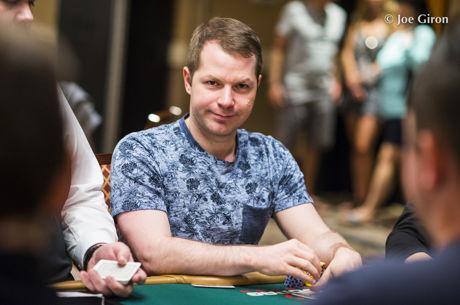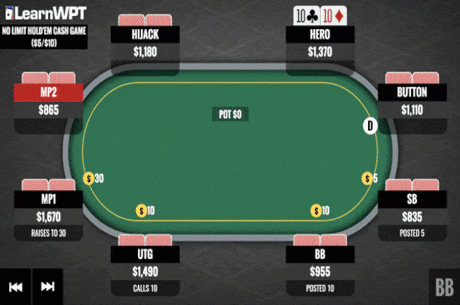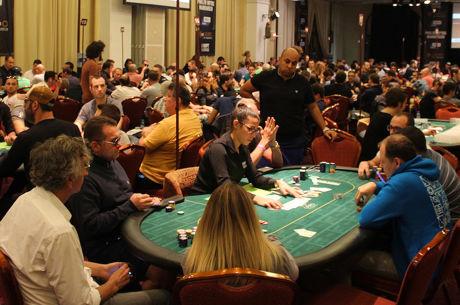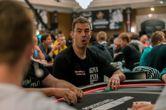A Lesson in Range Narrowing: High Roller Champ Dominik Nitsche Analyzes Key Hand
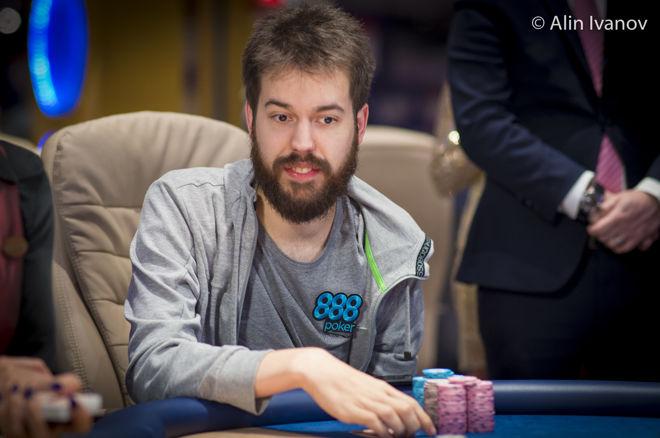
Dominik Nitsche won his fourth World Series of Poker bracelet on Sunday, topping a 132-entry field to win the �111,111 High Roller for One Drop at the World Series of Poker Europe in Rozvadov, Czech Republic.
A big double-up early on Day 2 helped position Nitsche for his run to victory in this one. The 888Poker Ambassador spoke to PokerNews about the hand, providing a thorough analysis that highlights the value of narrowing an opponent's range each step of the way.
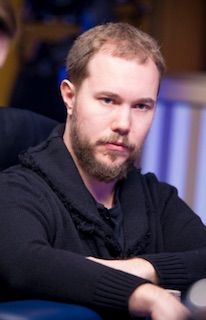
Livestreams are often good to watch in order to learn poker strategy, especially those of events such as this one that involve so many top players. Since this hand occurred on the feature table and was livestreamed by WSOP.com, we can fill in specifics of the hand history related by Nitsche below.
They were a couple of hours into Day 2 with 38 players left and the top 20 making the cash. The blinds were 80,000/160,000 with a 20,000 ante. Action folded around to Alexander Kostritsyn on the button who had just over 8.3 million to begin the hand (about 52 big blinds), and he chose just to call.
"Once he calls on the button, it's very important to start defining his hands already," explains Nitsche who proceeds to run through the many medium-strength hands with which he thinks Kostritsyn might have limped.
Sitting to Kostritsyn's left in the small blind, Nitsche had 5.78 million to begin (about 36 BBs) and after looking down at A?Q? chose to raise to 650,000.
"I decided to raise to four times the big blind," says Nitsche, adding that he might have raised even more against Kostritsyn's probable range. The big blind folded and Kostritsyn called, making the pot 1.62 million.
"We can now discount the bottom-suited hands," says Nitsche, referring to Kostritsyn's call of the three-bet that enabled him further to narrow his opponent's likely holdings.
"The only decision for me at this point is how much I want to bet on the turn."
The flop came 7?A?10?, Nitsche continued for 500,000, and Kostritsyn called. Here Nitsche lists reasons why he made a small continuation bet and again runs through the ranges both he and Kostritsyn could (or should) have when the turn brings the J?.
As Nitsche explains, by this point he has Kostritsyn mostly narrowed down to a number of lesser AxXx hands (and likely not ace-jack). "The only decision for me at this point is how much I want to bet on the turn," says Nitsche, who runs through the pros and cons of betting different amounts.
Ultimately Nitsche moved all in for 4.61 million total, much more than the 2.62 million in the middle. As he points out, doing so both put Kostritsyn to a tough decision with the hands Nitsche felt he likely held as well as prevented Nitsche from having to deal with what would probably have been a tricky river decision if he'd have bet smaller and been called.
Kostritsyn thought for nearly two minutes, then decided to call, turning over one of the medium-strength hands Nitsche had estimated he might have �� A?9?. Watch to hear Nitsche's complete street-by-street analysis of the hand:
The hand catapulted Nitsche up the leaderboard, then after making yesterday's final table with a medium stack he was able eventually to take the lead and the title.

